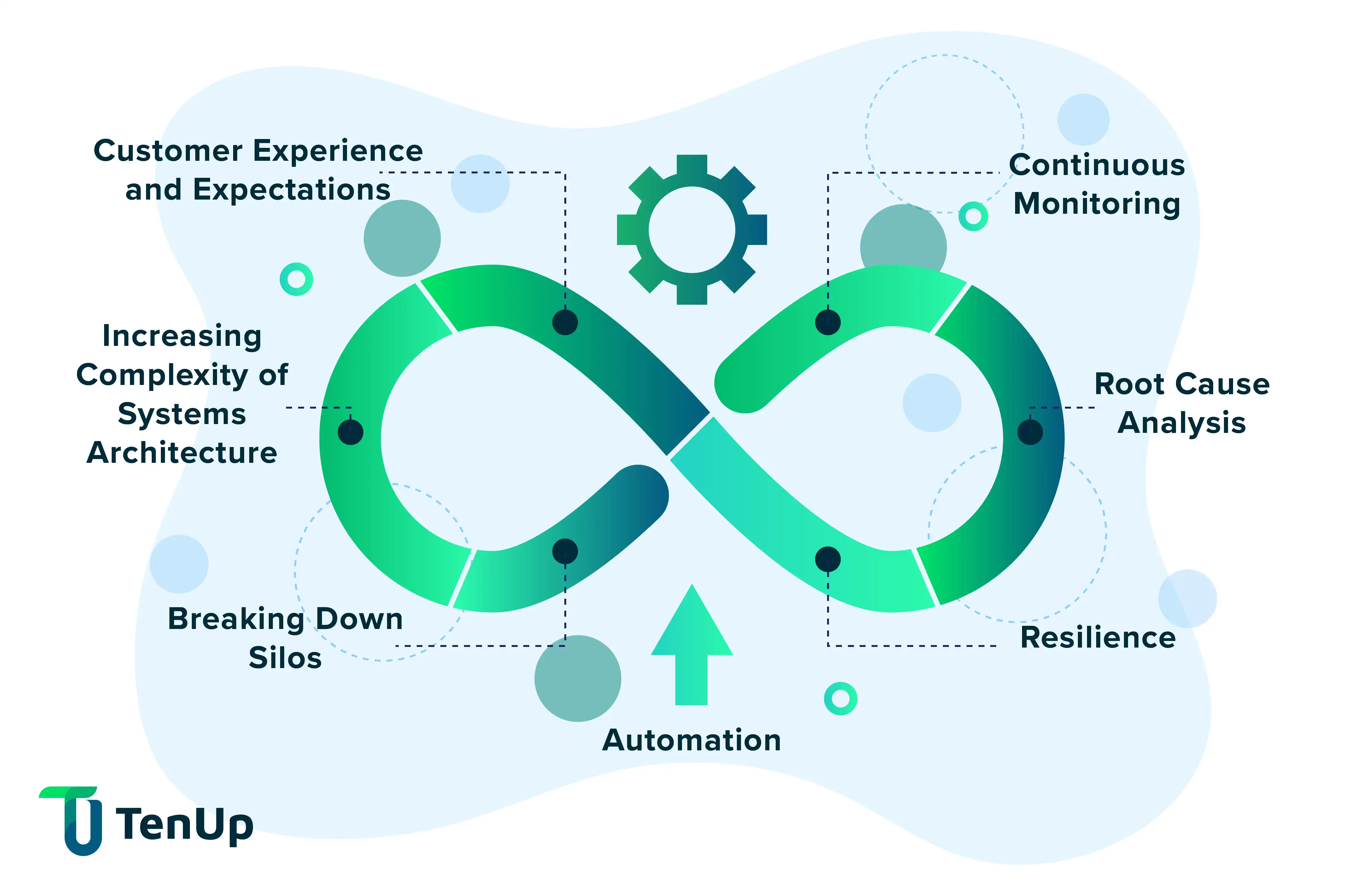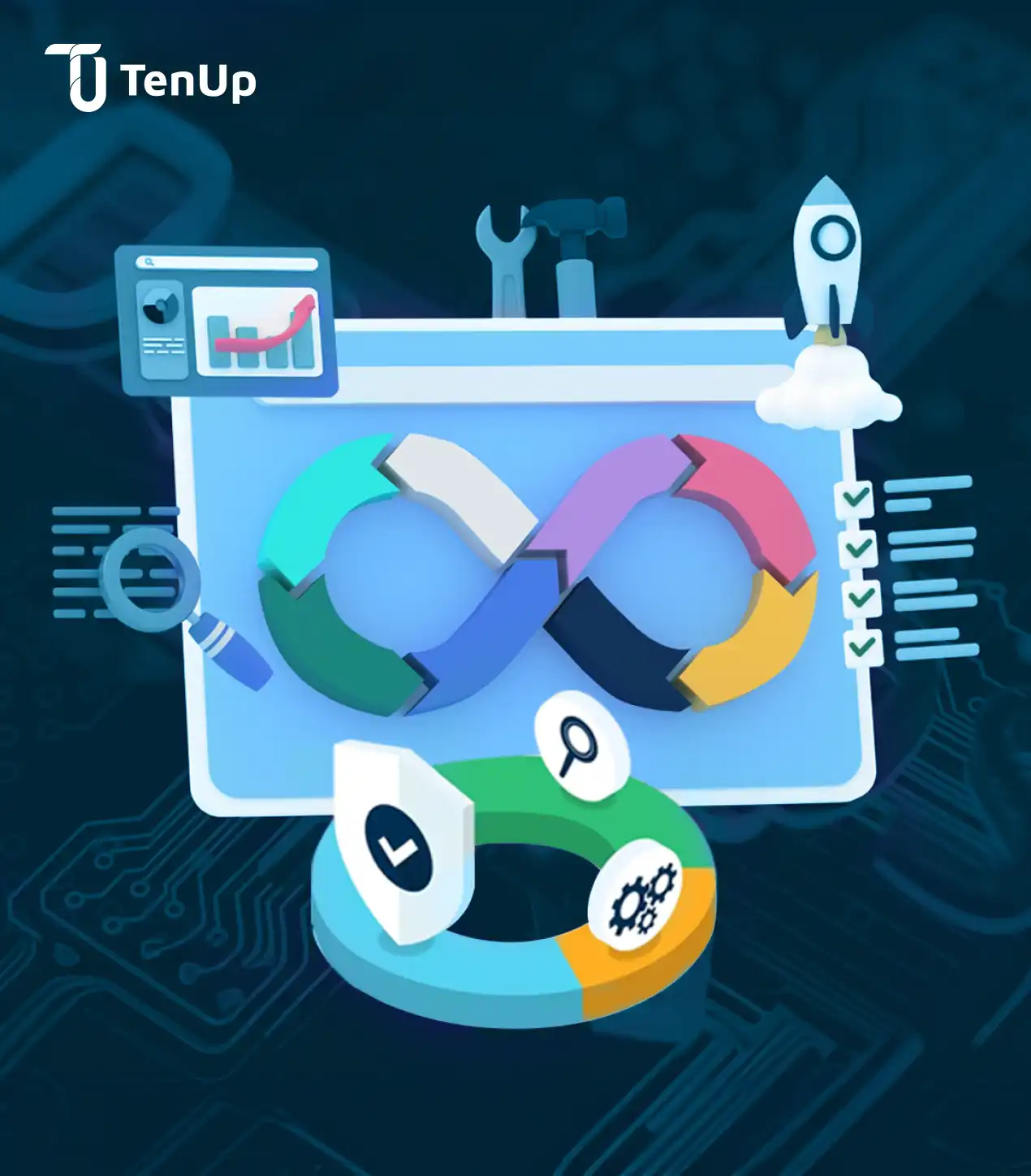What is SRE? A Deep Dive into DevOps vs SRE
Site Reliability Engineering (SRE) is a discipline within software engineering that combines software development and IT operations to ensure the reliable, scalable, and efficient performance of applications and infrastructure. Originating at Google, SRE emphasizes the consistent availability, performance, and maintainability of systems, making it critical for modern software environments where uptime and user experience are paramount.
With the emergence of roles like reliability engineer and platform engineer, there is some confusion as to the differences between standard DevOps skills and responsibilities versus the reliability engineering role. However, the focus areas, responsibilities, and KPIs for DevOps and SREs vary significantly even if there is an overlap in overarching goals.
Where DevOps focuses on code release management, ensuring collaboration between different teams, and breaking barriers between dev and ops, SRE focuses more on the platform’s stability, leveraging software engineering and operations by automating IT tasks. SREs really enable and empower DevOps.
Key Principles for Achieving Excellence in Reliability Engineering
-
Systems Availability: Reliability Engineering ensures that software systems are up, and running smoothly and available to users. Reliability engineers focus on reducing downtime and rapidly resolving incidents.
-
Metrics-led approach: Various metrics and Key Performance Indicators are used to evaluate reliability. Some common KPIs include Service Level Objectives, Service Level Indicators, Error Budgets, Mean Time Between Failures, Mean Time to Repair, Availability, Reliability, etc. Each organization and team has their own set of benchmarks and metrics for success.
-
Actionable Insights: Simply gathering data is not enough. SRE engineers track the performance parameters, use monitoring tools and conduct post-incident reviews to spot problems and mitigate future failures.
-
Proactive Problem Solving: A big part of reliability is the ability to predict future issues and build resilient systems to continuously optimize for higher reliability.
Need scalable architectures for rapid growth?
Our DevOps expertise can bring both pace and scalability to your software development process.
Why Reliability Engineering is Essential for Optimizing DevOps Performance
Both reliability engineering and DevOps share a common philosophy around automation and collaboration. SREs play a vital role in DevOps by ensuring continuity, solving a host of operational issues like network availability and customer experience, and making sure that systems are available, reliable, and performant throughout their lifecycle. Here is how reliability engineering empowers DevOps practices:

-
Customer Experience and Expectations: Customer is the king and the king expects nothing but continuous availability and uptime. One key focus area for SREs is ensuring that systems meet or go above and beyond customer expectations by improving application performance and resource availability. In fact, a Gartner Report suggests that Enterprises utilizing site reliability engineering practices to optimize cost, operations, and product design will increase from 10% in 2022 to 75% by 2027.
-
Increasing Complexity of Systems Architecture: Over the years, software architectures have become increasingly more complex. DevOps relies on platforms like Kubernetes and other cloud-native technologies to manage containerization and orchestration. However, with the increasing complexity of cloud and systems architecture, dedicated individuals with specialist knowledge have become vital to the success of DevOps. The skills needed to navigate the highly specialized landscape of DevOps now extend far beyond the reach of the quintessential IT roles. SREs offer much-needed support for the performance and stability of these intricate systems and software environments.
-
Breaking Down Silos: Collaboration is the linchpin of DevOps success. Reliability engineering helps break down silos between development and operations teams by fostering collaboration and communication. SREs bridge the gap between these traditionally separate entities, ensuring alignment and coordination in delivering reliable and high-performance products.
-
Continuous Monitoring: An important KPI for SREs is continuous monitoring of system health, performance, and user experience. Reliability engineers, therefore, implement processes for early detection and mitigation of issues before they become severe. Continuous monitoring also allows SREs to spot unusual patterns and anomalies to enable swift remediation and intervention. This ties up very neatly with the DevOps principle of continuous monitoring,
-
Root Cause Analysis: SREs not only play a vital role in identifying and resolving issues that lead to downtime or disruption, they also play an important role in incident management by carrying out root cause analysis. This continuous process of learning and improving enhances systems reliability.
-
Resilience: At its core, reliability engineering should focus on creating resilient systems that are fault-tolerant. By baking in redundancy, intelligent failover, and resilience, SREs can minimize the impact of failures and disruptions, maintaining service availability.
-
Automation: Automation is a central theme of both DevOps and reliability engineering. It helps teams to streamline workflows, speed up delivery, and reduce the chances of human error. Leveraging automated testing, deployment, monitoring, and incident response, SREs can significantly improve the dependability of their infrastructure.
How Organizations Can Harness Reliability Engineering to Supercharge DevOps
Organizations today need to innovate rapidly to meet changing customer expectations while achieving both speed and stability in software development. We’ve listed our best practices in leveraging reliability engineering with DevOps below. They include:
-
Incorporating Reliability into DevOps: Right from design reviews to automated testing and continuous monitoring and observability, SREs can implement robust processes and systems that can proactively warn of degradation of failures. For example, while designing SREs can work with developers to build systems with scalability and redundancy in mind.
-
Setting KPIs for Reliability: It is important to identify quantifiable reliability targets or SLOs such as 99.99% uptime. Knowing the acceptable risks and error budgets allows team members to balance innovation with safety.
-
Use Automation to their Advantage: Automation is your friend. Not only does it reduce grunt work, but it also reduces the chances of human error. Using automation, SREs can streamline deployment processes, incident management, and operational tasks to stabilize and improve reliability.
-
Data-led Approach: Both SREs and DevOps leads should use metrics to find bottlenecks, failure trends, and opportunities for resource optimization.
-
Shared Ownership: Reliability engineering must ensure a shared onus of reliability between development and operations teams to break down traditional barriers and nurture collaboration.
Conclusion: The Symbiotic Relationship Between DevOps and Reliability Engineering
If implemented well, Reliability Engineering has game-changing potential for the DevOps movement. Not only does it ensure increased uptime and resilience, it allows room for faster experimentation and innovation with greater confidence. Our highly skilled DevOps team understands and works on this philosophy. It has helped us provide reliable DevOps Engineering Services across industries. With an increased reliance on automation, our dev and ops teams focus on more strategic goals and system improvements. This symbiotic relationship between Reliability Engineering and DevOps not only fosters a culture of continuous improvement but also creates the way for advancements in software delivery and system management.
Seeking to leverage Reliability Engineering benefits?
We have the experience and skills you need to boost DevOps performance with Reliability Engineering.

